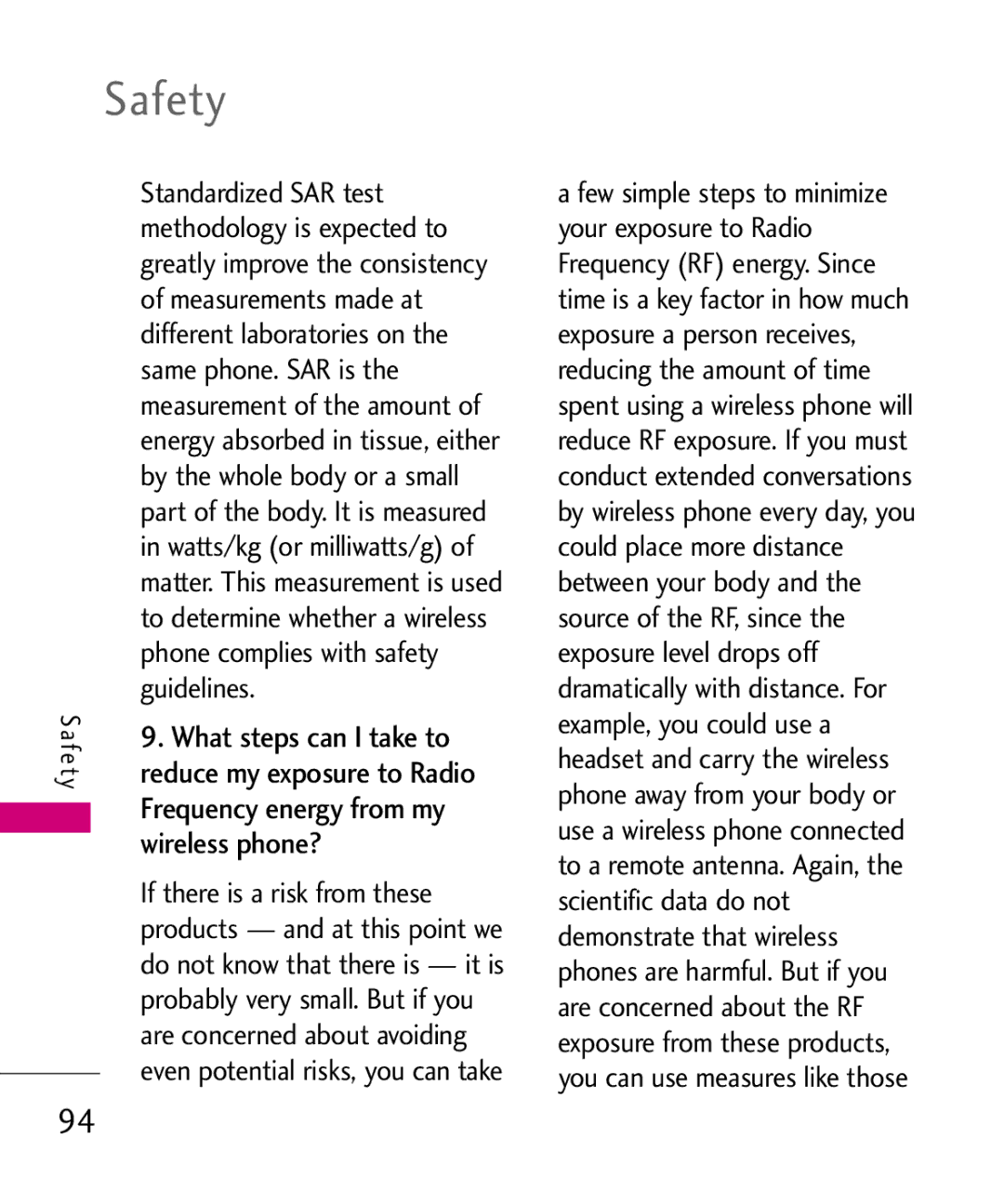Safety
|
| Standardized SAR test |
|
| methodology is expected to |
|
| greatly improve the consistency |
|
| of measurements made at |
|
| different laboratories on the |
|
| same phone. SAR is the |
|
| measurement of the amount of |
|
| energy absorbed in tissue, either |
|
| by the whole body or a small |
|
| part of the body. It is measured |
|
| in watts/kg (or milliwatts/g) of |
|
| matter. This measurement is used |
|
| to determine whether a wireless |
|
| phone complies with safety |
|
| guidelines. |
Safety | 9. What steps can I take to | |
reduce my exposure to Radio | ||
|
| Frequency energy from my |
|
| |
|
| wireless phone? |
|
| |
|
| If there is a risk from these |
|
| products — and at this point we |
|
| do not know that there is — it is |
94 | probably very small. But if you | |
are concerned about avoiding | ||
|
| even potential risks, you can take |
a few simple steps to minimize your exposure to Radio Frequency (RF) energy. Since time is a key factor in how much exposure a person receives, reducing the amount of time spent using a wireless phone will reduce RF exposure. If you must conduct extended conversations by wireless phone every day, you could place more distance between your body and the source of the RF, since the exposure level drops off dramatically with distance. For example, you could use a headset and carry the wireless phone away from your body or use a wireless phone connected to a remote antenna. Again, the scientific data do not demonstrate that wireless phones are harmful. But if you are concerned about the RF exposure from these products, you can use measures like those
